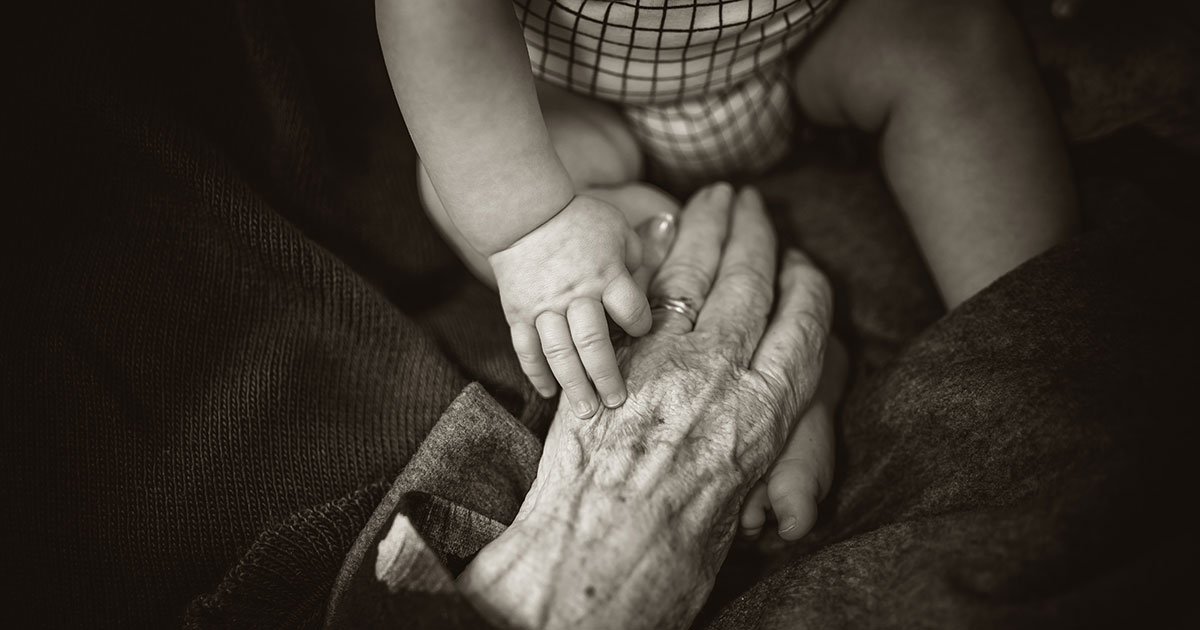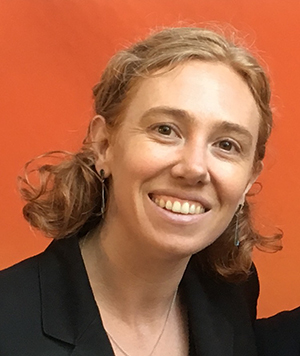LETTERS FROM BERLIN
★ ★ ★ ★
FINDING MYSELF IN FAMILY

By Annie Mark-Westfall
We are back in New York this week for Grandma Bea’s 100th birthday celebration, relishing the blessed, cacophonic chaos of a house bursting full of family. My saint of a mother wakes with my jet-lagged toddlers at 4:00 am, so I can rest and recover from the strep throat that I picked up on the airplane. As I lay in bed listening to the children’s giggles and cries, the dog’s insistent bark, and my mother’s endless patience, I contemplate my surroundings – both physical and spiritual.
I am staying in the room upstairs that had been my grandparents’. Grandma’s room is now on the ground floor—and has been, for years—in what used to be the “den.” Still, in the part of my brain that always reverts to childhood here, my room is for the adults of the house. I have to remind myself that I am an adult, with a husband and two babies.
I need to learn the German word for this weird feeling of the past and the future sweeping over you, simultaneously. There must be one.
In my teens and twenties I desperately wanted to do or be something singular and unique. Now in my thirties, I want to know all the ways in which I am connected to the world. What experiences and aspects of my life make me ordinary, and not special at all? How does my story relate to others’?
In New York, I answer this question by turning to my family. In Berlin, where I have no extended family, I join and create women’s groups, attend women’s events, and explore what it means to be a woman. An American woman, a Jewish woman, a woman with children, a woman in my thirties, a woman who is the primary income provider for her family, a woman living in a foreign country, a woman from a long line of strong women, a woman interested in other women around the world.
Because the personal is political, and we are in the era of #MeToo, there is no escaping that these are political questions. Over the past several years, as I have struggled with the politics of the United States government and watched the rise of populism, I have started wondering if democracy is not really the great equalizer that our civics teachers claim. In fact, I have started wondering if maybe allowing people to choose their own leaders—when science has proven repeatedly how poor humans are at decision-making—is perhaps the exact opposite of how we should select governments. In the right company, after the right amount of alcohol, I sometimes whisper (or say a little too loudly), “I don’t believe in democracy any more. I am ready for a post-democratic world.”
Last week in Berlin, I attended an event on the upcoming European parliamentary elections, and how women can effect real change. As the panelists outlined all the ways in which the Western world is still a rich man’s world, I had that old maudlin feeling deep within me; the same one that I get from watching black and white movies; a desperation for color, for progress, for modernity.
This mounting despair was interrupted by the words, “Capitalism is a great friend of Patriarchy.” What a brilliant and succinct summary of the problem. I sat up and paid closer attention.
On stage, the inspiring, articulate young woman from Spain next put up a slide on parity democracy, which I had to Google. Parity democracy is “full integration of women, on an equal footing with men, at all levels and in all areas of the workings of a democratic society.” She outlined a vision for Europe in which education reform receives as much high-level political attention as trade agreements; in which the women’s ministries (which do not currently exist) meet as often as the sports ministers do (which is currently four times per year). I have not felt as much hope for government, or democracy, since Barack Obama’s campaigns.
In highlighting the invisible roles of women throughout history, the event inspired me to return to my own Family History. My Great Aunt Harriet wrote it in 1990 as a way to grieve the loss of her parents. Our written history is 200 pages contained in plastic spiral binding, and four copies exist—one for my grandfather (Harriet’s brother) and one for each of his boys: my father and his two brothers.
I open randomly to page 34. The top of the page contains a description of my great-grandmother Dora, written by her daughter:
“Because she wanted to be a valuable, contributing member of the Workmen’s Circle [an American-Jewish nonprofit organization that promotes social and economic justice], she had to budget her time carefully between family needs and organization demands. She believed she had resolved this competition for her attention, satisfactorily, but years later, when she was already in her seventies, she came to the reluctant conclusion that she probably had failed somewhat in her role as a mother.”
I look up from the page and realize I am holding my breath. Is it comforting or terrifying to know that I am struggling with the same exact challenges and fears as my great-grandmother?
In New York, this question still buzzes in my head. Also, what is the role of a mother? Is it not to go out and create parity democracy for our daughters? Downstairs, my daughter is playing with my mother and grandmother. I go back to sleep, vowing to update the Family History for her. If she cannot find herself in society, then hopefully she can find herself in our family.

Annie Mark-Westfall graduated from Kenyon College in Ohio. As a former Fulbright grantee and Robert Bosch Foundation fellow, she views herself as a cultural ambassador. Her day job is with an international conservation organization.

DEAR READER
At The Wild Word we are proud to present some of the best online writing around, as well as being a platform for new and emerging writers and artists.
If you have read the work in The Wild Word and like what we do, please put something in our tip jar.
THANK YOU FOR YOUR SUPPORT!
























0 Comments